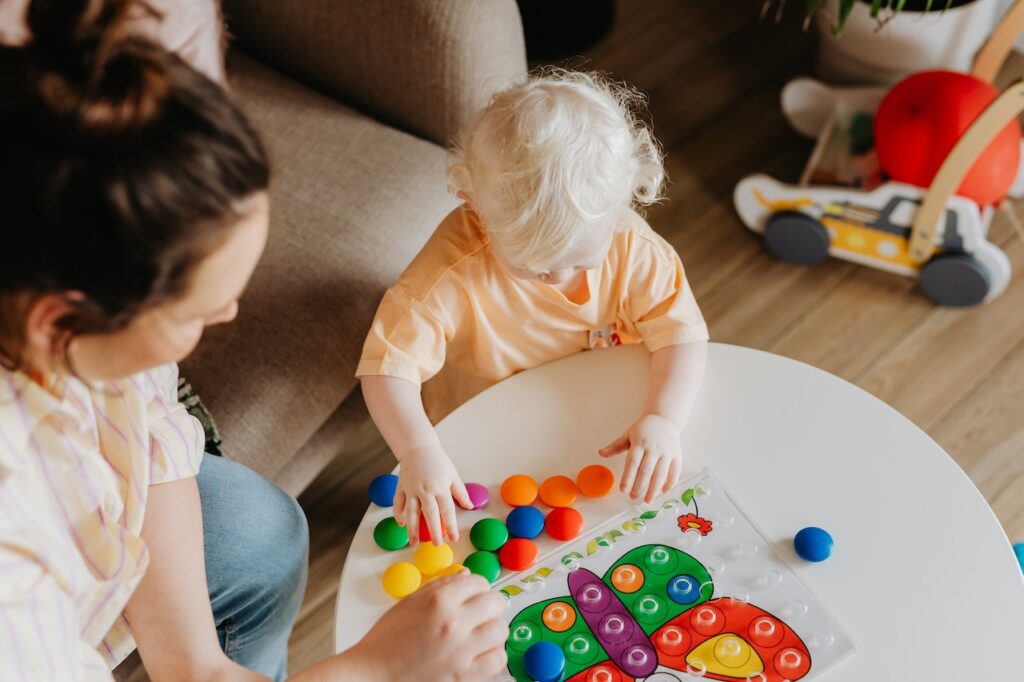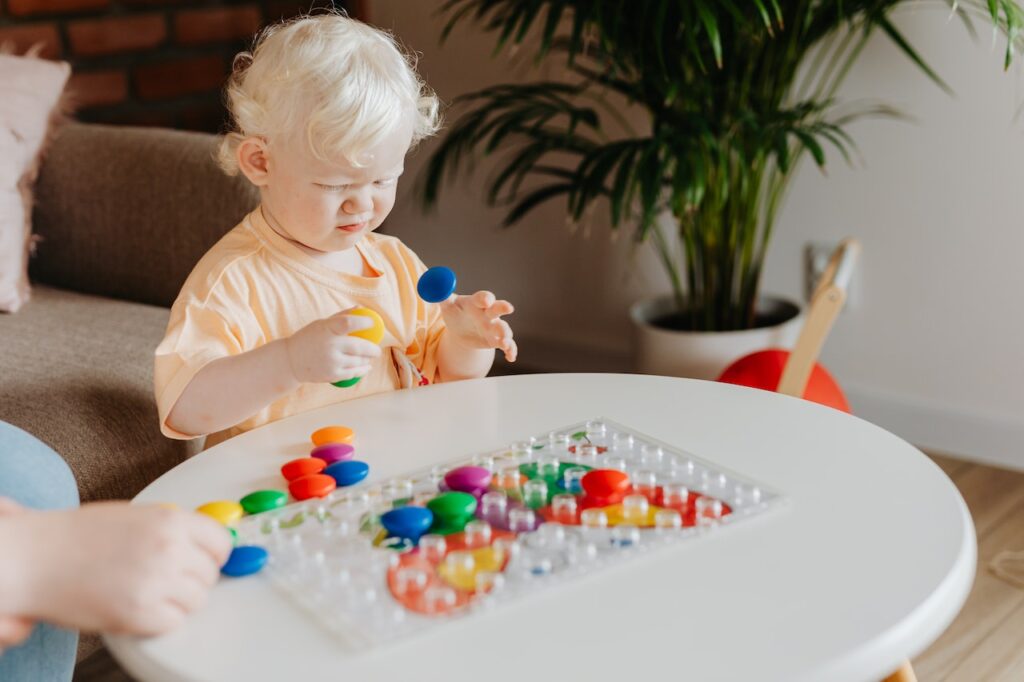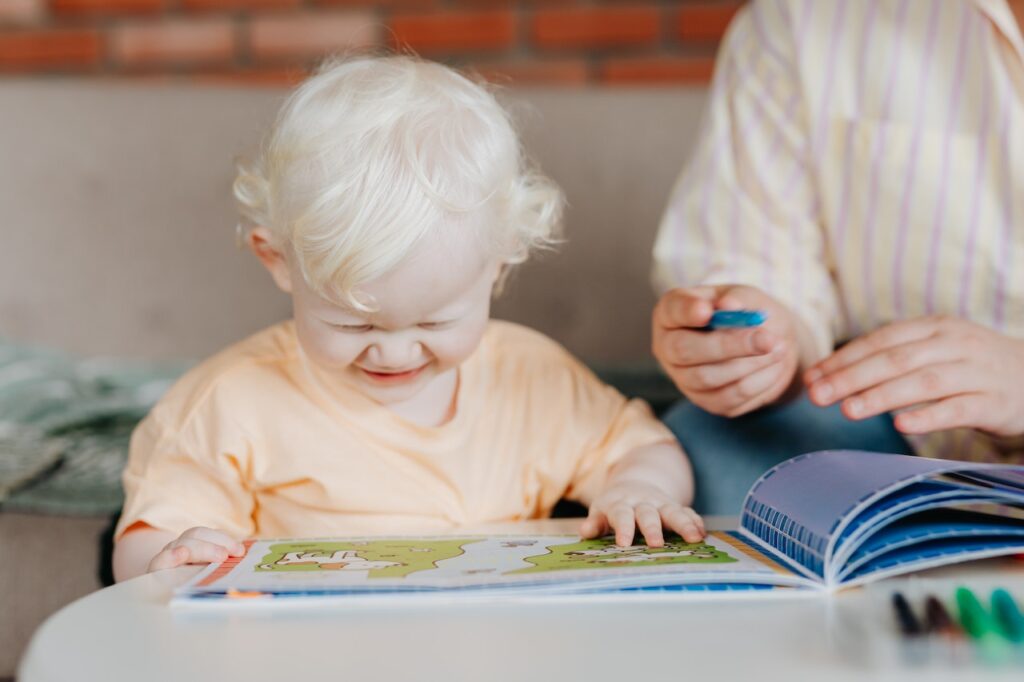Toddler Aggression and how to solve it
Aggression in toddlers is quite common, and if you think about it that makes a lot of sense. Toddlers have big feelings, and usually lack the vocabulary to express those big feelings. As a result, they may respond in anger or physical aggression to things that they don’t understand, things that are new, or those that scare them.
Sometimes toddler aggression may simply be the result of their being tired, hungry, or plain old not feeling well. Fortunately, there are some ways that you as a parent can deal with toddler aggression and help them to learn how to deal with all of those big feelings as well.
Toddler aggression can be shown in many ways such as hitting, biting, punching, shoving, throwing, pinching, or throwing a tantrum on the floor. Most toddlers will show aggressive behavior at some point.
It can be because a playmate took a toy that they were playing with, or maybe someone hit or bit them first, or maybe mom or dad said no and they reacted with anger. Sometimes toddlers may even hit, bite, kick, or punch another person just to see what happens. This is normal too, as you may know seeing cause and effect is a big part of the way toddlers learn.
So what should you do if your toddler is behaving aggressively?
Remain Calm
First and foremost, you should respond to any aggressive behavior from your toddler in a calm manner. Raising your voice, yelling, hitting, or responding aggressively is not modeling good behavior.
It is your job to speak calmly and show them how to moderate their emotions. Never “show” your toddler “what it feels like” by hitting or biting them back. This just teaches them that YOU can show aggressive behavior because you are bigger or because you are the parent.
Respond Immediately
As a parent, you must respond to your toddler’s aggressive behavior immediately. They have short attention spans and if you don’t address their aggressive behavior when it is happening they may have forgotten what they did. If little Johnny hits Susie for taking his toy, you must respond immediately in a calm voice, we don’t hit people, hitting hurts as soon as it happens.

Don’t Let Them Get Their Way
You should never “reward” your toddler by letting them have a favorable outcome after showing aggressive behavior. For example, letting them keep a toy to play with after they hit or bit someone to get it, or if you are in the store and they start throwing a tantrum for a particular kind of cookie, don’t buy it. This rewards them for bad behavior and will encourage them to repeat this tactic in the future.
Comfort the Victim First
If the victim of your toddler’s aggressive behavior is another child, go to them and comfort them first. If they need first aid like an ice pack for bruising for a bite, clean the bite with antiseptic, and give them one.
You don’t want your toddler to think hurting someone else is the best way to get your attention for themselves. That is a de facto reward for bad behavior, if I hurt my sister, mom will pay attention to me. After you have taken care of the victim, then talk to the aggressor and explain why we don’t do whatever behavior was exhibited.
Recognize Good Behavior
Acknowledge and tell your child when their behavior is good, it doesn’t have to be anything out of the ordinary. Did they sit quietly through dinner? Then tell them “I was really proud of how you sat through dinner tonight”.
Did they get ready for bed without having to be told twice? “Thank you for getting ready for bed when I asked, now would you like to read a bedtime story?” Recognizing their behavior when it is positive just reinforces that they don’t have to do anything “bad” or aggressive for you to notice them.

Know Your Child’s Triggers
For many toddlers, their aggressive behavior may only come out when they are overtired, stressed out, hungry, out of their routine, or starting to come down with an illness.
If you know that these things are triggers for your toddler you can be prepared to watch them closely for signs of aggression and remove them from the situation before it becomes an issue, or help them to fix the problem by offering them a snack or a quiet rest.
Help Your Child to Name Their Emotions
If you can see that your child is getting upset you can say “ I can see that when Jenny took your train it made you very angry”. That way you are giving them a name for what they are feeling, and validating their emotions. This encourages them to use their words instead of reacting physically when they get upset.

Help Them Explore Alternative Actions
If your toddler hits little Susie and takes her stuffed animal, ask your toddler “how do you think it made Susie feel when you hit her and took her toy from her?” Then ask if they can think of a better way to get the stuffed animal.
Hopefully, they will say something along the lines of “I could have asked Susie if I can play with the toy”, but if not you can guide them to that. Asking your toddler to participate in problem-solving can make it more likely that they will take the less physical approach in the future.
Offer an Appropriate Physical Outlet
If your toddler is angry or frustrated and that is what causes them to be physical towards others, give them an appropriate outlet to let that energy out. Let them kick a soccer ball (outside), punch a bean bag, or encourage them to go outside and yell until they feel better. This validates their feelings and gives them a safe way to release those emotions.

Model Good Behavior
You are the person that your toddler looks to for modeling appropriate behavior. If you are constantly flying off the handle, getting upset over little things, yelling all of the time, or otherwise overreacting when you are upset, this is how your toddler will behave.
If mom or dad yells or punches things when they are angry, it must be okay for them to respond that way too.
You are not alone with your toddler’s aggressive behavior, it is actually a normal part of toddler development that most parents go through at some point.
Use these tips to help manage your toddler’s aggression and to teach them that there are more appropriate ways to express their feelings. Do you have any other tips for dealing with toddler aggression that you would like to share?






